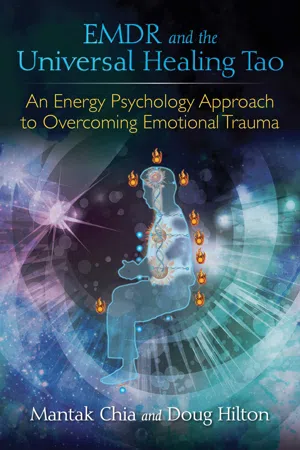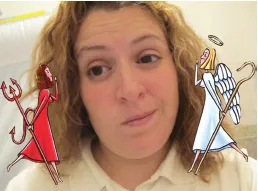We all seem to be searching for similar things: inner peace, emotional control, ways to shut off unwanted thoughts, physical health and vitality, an understanding of the principles upon which life operates, and an understanding of how best to respond to life as it presents us with changes and challenges. Each of us searches at our own pace and in our own way for answers. In our modern world there are so many options to explore. One person may turn to religion for answers, another may embrace a particular branch of science, and another may turn to alternative or complementary health practices. Each of these has merit, of course, but may not provide a complete enough explanation and experience to satisfy the individual seeker. It is a common experience that even when people find a belief system that is satisfying, and when they know what they should do, think, or feel, they do not know how to put those intentions into action. Addictive quick fixes can seem simpler and more reliable than the work that it takes to find or make our own magic in life, but they do not produce the same kind of lasting satisfaction that the journey to genuine happiness can bring.
LOSING OUR WAY
In general, we all know that we are supposed to “do the right thing,” but how do you know what that is in each given situation? During times of confusion and struggle, friends and relatives will tell us to “be strong,” “don’t give up without a fight,” and “listen to your gut,” but at other times they will tell us to “take the good with the bad,” “let it go,” and “use your head.” When are we supposed to “turn the other cheek” and when are we supposed to “stick to our guns”? If we do not have a foundation of knowledge and practice to help us know how and when to do what, even well-meaning advice can be very confusing. How are we supposed to develop self-discipline if we do not know how our various mental, emotional, and physical systems work or how they are connected to and affected by our environment?
Without knowing how to sort out what our approach should be, most of us react out of fear and rely solely on our willpower and logic to get us through life. The trouble, of course, is that life does not always conform to our will or our personal ideas of how things should be. When we overuse our willpower to control things, we tend to get into power struggles with our friends, bosses, family, spouses, and coworkers. Anger, frustration, fear, worry, and resentment can build as we discover time and again that—no matter how clear we are in our minds about what should happen in life—we will not always get our way. We can even become overwhelmed when our experiences are too far from our beliefs about the world or ourselves. Overwhelming feelings can lead to anxiety and depression.
Fig. 1.1. Contradictory messages create confusion.
Fig. 1.2. Trying to control the uncontrollable can feel like you are trying to push a large boulder up a hill.
Mass media reinforces the idea of turning to some external source to feel better. The reminders and encouragement are all around us—in magazines, in books, on television, on billboards, and on the web. The message might be encouraging you to do something unhealthy like drink alcohol, do drugs, smoke cigarettes, eat excessively, or gamble. Or it might be encouraging you to do something healthy such as reading a book, watching a funny movie, visiting with friends, or joining a meditation class. Even when we can access those healthy external sources, striving for more and better external things to make us feel better only provides temporary relief from our stress and confusion. Other messages reinforce the idea that the accumulation of stuff will make us happy, but there is no guarantee that we will always have the money to buy those things.
Fig. 1.3. Our society encourages us to buy things with the hope that those things will make us happy.
Another aspect of our modern society that unwittingly contributes to the need for people to resort to external solutions for their problems is our emphasis on fairness. Fairness is woven into our culture through the mass media. We all like hearing stories about good triumphing over evil. Unfortunately the combination of encouraging people to control their environments and their destinies through willpower with the idea that fairness is expected and desirable in life is a recipe for failure, disillusionment, and feeling overwhelmed.
Sometimes people end up doing something unhealthy like alcohol, drugs, or gambling to cope with those overwhelmed feelings. Some people end up dependent on some addictive substance or activity. Addiction and trauma are key and pervasive factors in most of the crimes and injustices that we perpetrate against each other. Most of us have probably asked at one time or another, “What is wrong with people?” and “Why can’t we just get along?” We wonder why there is so much war, deceit, and thievery over money, objects, and land. However, those behaviors could be viewed as by-products of a world that supports the accumulation of things as the solution to our problems.
Many of our formal efforts to change such patterns have been to create specialized services and expert positions to tackle each part of the problem. We have put a lot of time, energy, and money into dividing problems up into subcategories, coming up with names for those subcategories, and creating policies, laws, services, training programs, and supporting paperwork to document our progress in addressing the issues. We create procedures and positions for evaluation of that progress. We restructure organizations based on these evaluations. Soon we will need to have experts to tell us which experts to access to get help for our problems. But is this approach really giving us the results we want? It does not seem like it. The wars on crime, drugs, terror, and poverty have not been won. Our strategies to deal with the symptoms are based on the same source beliefs of logic and willpower that created those problems in the first place.
Fig. 1.4. Logic and willpower seem useful on the surface, but sometimes they can lead us to solutions that create more problems and complexity.
In short, we live in a world that seems dominated by the idea of striving to soothe our suffering and yet our suffering is a result of that same striving. This can lead to unhealthy beliefs and habits that are woven so tightly into our individual beliefs and habits that we do not notice or stop to question them.
LIVING IN A QUICK-FIX SOCIETY
Media bombards us regularly with the latest and quickest ways to help us feel better, save time, and reach our goals. Quick fixes are celebrated; they seem so appealing and meet many needs at once. For example, people smoke cigarettes to relax, to be social, to feel cool or sophisticated, and to get more energy. A fix feels convenient and efficient. It is no surprise that people turn to more drastic and dangerous quick fixes when the ones that they usually use are not working or if they do not have healthier alternatives. Using quick fixes as a lifestyle creates a paradoxical pattern. People end up trying to use quick fixes to relax. However, if that strategy does not work, they find themselves unable to relax. Then they have a tendency to try more dangerous quick fixes so that they can relax. Cycles like this could be avoided if they learned how to do the opposite—relax first and then go fix whatever remains to be addressed after that.
Fig. 1.5. Enjoying the moment too often requires artificial stimulation.
RACING TO FILL YOUR LIFE CAN LEAVE YOU FEELING EMPTY INSIDE
Living in a Competitive Society
Our world runs on money. Some people have more than others. We cannot have the things we want without money, so we compete for money, power, and status in the hope that we will then have those things one day. Some people will win those competitions, while others will lose. We will all lose at times. We notice when that happens and tend to feel down, at least for a while. We tend to put pressure on ourselves to do more and better so we can get the money and things we want. That can create stress and anxiety.
Fig. 1.7. Trying to win as a lifestyle will eventually lead people to feel disappointed and resentful.
Too Much Attachment, Not Enough Detachment
In our consumerist culture we are bombarded on a daily basis with messages from media of all kinds that we need to buy and achieve things to be a success. We are encouraged to “fight for what is ours.” We end up clinging to our belongings as a result. Such attachment inc...







